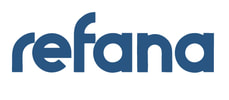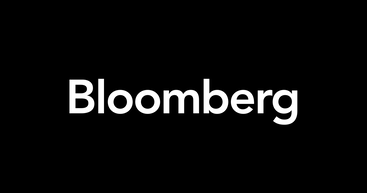|
10/6/2021 Private clinics in Singapore seeing demand for Sinovac and Sinopharm Covid-19 vaccines as booster shotsRead NowSINGAPORE: Several private clinics here have been seeing a demand for Sinovac and Sinopharm vaccines as booster shots, owing largely to a fear of side effects from the third dose of an mRNA jab. Vaccines like Sinovac and Sinopharm use inactivated viral particles to teach one's immune system to make antibodies. So far, it has been recommended that those aged 50 and above take an additional mRNA shot of either the Pfizer-BioNTech or Moderna vaccines at least six months after their two-dose vaccine regimen, to ensure a high level of protection from severe disease is maintained across a longer period. The Expert Committee on Covid-19 Vaccination is still studying the possibility of mixing vaccines for the booster dose. Dr Chua Guan Kiat, a general practitioner at Chua Medical Clinic and Surgery in Bukit Batok, told The Straits Times that there has so far been a "sizeable demand" for Sinovac and Sinopharm as vaccine boosters, the bulk of which comes from the elderly who had been fully vaccinated with an mRNA vaccine. Since his clinic started offering Sinovac jabs on Sept 23, Dr Chua said that 20 to 30 doses of booster vaccine are being administered each day, with demand likely to rise steadily now that those over 50 have also been invited to take their booster doses. He added that the fear of potential side effects from a third dose of the mRNA vaccine has been a major driving force to opt for an inactivated vaccine like Sinovac as a booster. "Anecdotally, many who had one dose of the inactivated vaccine after receiving two doses of the mRNA had very good antibody results. No doubt, the best antibody results were still obtained with a third mRNA dose, but many didn't want to go through the same side effects again," he said. One of his customers, Mr Ho, who is in his 60s, recently received his Sinopharm booster jab after two doses of the Pfizer vaccine. Asked why he had opted for Sinopharm instead of an mRNA vaccine, Mr Ho said he felt the Sinopharm vaccine uses a tried-and-tested inactivated virus technology, whereas the mRNA technique was previously used to help stimulate antibody response in patients with late-stage cancers. Mr Ho, who declined to give his full name and his occupation, said the long-term effects of mRNA still remain unknown. He told ST that he experienced severe pain at his injection site after his second Pfizer dose but not after his Sinopharm booster. Read the full article here.
0 Comments
10/5/2021 Australia approves CoronaVac and Covishield and opens the way for the entry of thousands of vaccinated foreignersRead NowCANBERRA — Australia has approved CoronaVac and Covishield vaccines, allowing travelers and foreign students immunized with them to enter the country. As the national immunization rate approaches 80% of the population vaccinated with at least one dose and 45.6% with both, Canberra will begin in November to eliminate one of the strictest border controls imposed in the world to contain the Covid-19 pandemic. CoronaVac, from the Chinese laboratory Sinovac, is one of the most used anti-Covid vaccines worldwide, with applications from Indonesia to Brazil and Turkey. CoviShield is the version of the vaccine from the University of Oxford and the AstraZeneca laboratory produced by the Serum Institute of India, the world’s largest manufacturer of vaccines. Australia uses Pfizer, Moderna and AstraZeneca vaccines in its campaign, so travelers who have taken these immunizations will also be free to enter the country. The announcement, made on Friday, opens the door to thousands of foreign students who were excluded from Australia during the pandemic as, according to the main Australian drug regulator, the Therapeutic Goods Agency, the entry of immunized travelers into the country it will only be released to people who have received “nationally recognized vaccines”. “Very soon, we can open international borders again,” said Prime Minister Scott Morrison. “This will start to happen from next month. Read the full article here.
A computer using artificial intelligence can’t be listed as an inventor on patents because only a human can be an inventor under U.S. law, a federal judge ruled in the first American decision that’s part of a global debate over how to handle computer-created innovation. Federal law requires that an “individual” take an oath that he or she is the inventor on a patent application, and both the dictionary and legal definition of an individual is a natural person, ruled U.S. District Judge Leonie Brinkema in Alexandria, Virginia. Read the full article here. |
Details
Categories
All
Archives
June 2024
|
Practical Solutions for complex and urgent global medical problems
© 2024 Refana Inc




 RSS Feed
RSS Feed